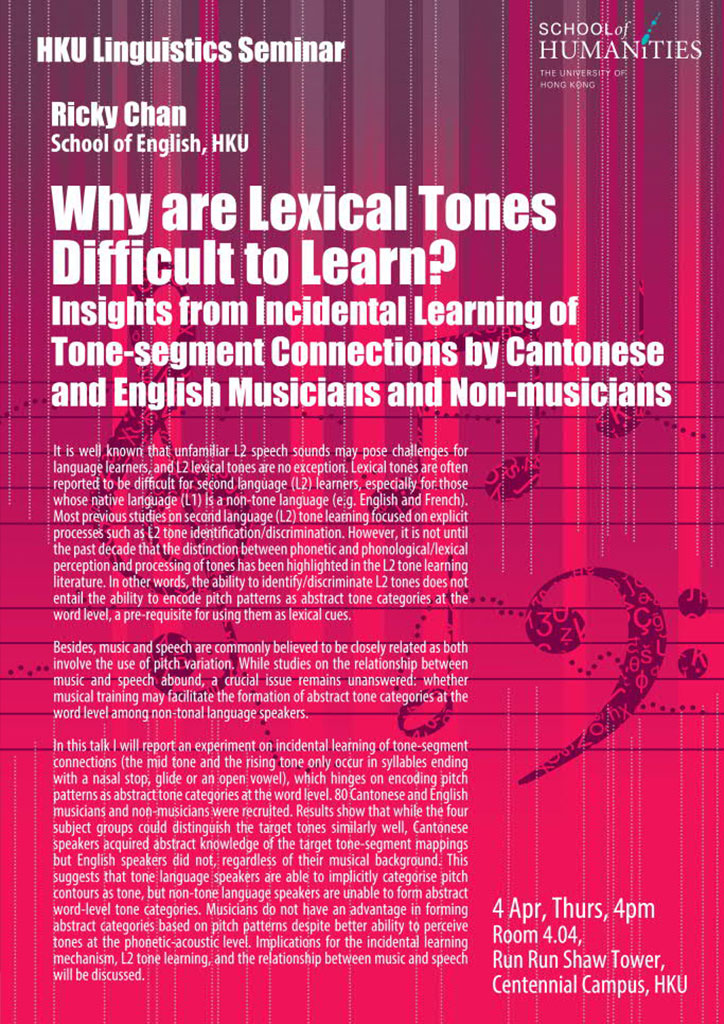
Department of Linguistics
Why are lexical tones difficult to learn? Insights from incidental learning of tone-segment connections by Cantonese and English musicians and non-musicians
Ricky Chan
School of English, HKU
It is well known that unfamiliar L2 speech minds may pose challenges for language learners, and 12 lexical tones Ore no exception. Lexical tones are often reported to be difficult for second language (12) learners, especially for those whose native language (L1) Is a non-tone language (e g. English and French). Most previous studies on second language (L2) tone learning focused on explicit processes such as E2 tone identification/discrimination. However, it is not until the past decade that the distinction between phonetic and phonological/lexical perception and processing of tones has been highlighted in the L2 tone learning literature. In other words, the ability to identify/discriminate L2 tones does not entail the ability to encode pitch patterns as abstract tone categories at the word level, a pre-requisite for using them as lexical cues.
Besides, music and speech are commonly believed to be closely related as both involve the use of pitch variation. While studies on the relationship between music and speech abound, a crucial issue remains unanswered: whether musical training may facilitate the formation of abstract tone categories at the word level among non-tonal language speakers.
In this talk I will report an experiment on incidental learning of tone-segment connections (the mid tone and the rising tone only occur in syllables ending with a nasal stop; glide or an open vowel), which hinges on encoding pitch patterns as abstract tone categories at the word level. 80 Cantonese and English musicians and non-musicians were recruited. Results show that while the four subject groups could distinguish the target tones similarly well, Cantonese speakers acquired abstract knowledge of the target tone-segment mappings but English speakers did not, regardless of their musical background. This suggests that tone language speakers are able to implicitly categorise pitch contours as tone, but non-tone language speakers are unable to form abstract word-level tone categories. Musicians do not have an advantage in forming abstract categories based on pitch patterns despite better ability to perceive tones at the phonetic-acoustic level. Implications for the incidental learning mechanism, L2 tone learning and the relationship between music and speech will be discussed.
4 Apr, Thurs, 4pm
Room 4.04,
Run Run Shaw Tower,
Centennial Campus, HKU
